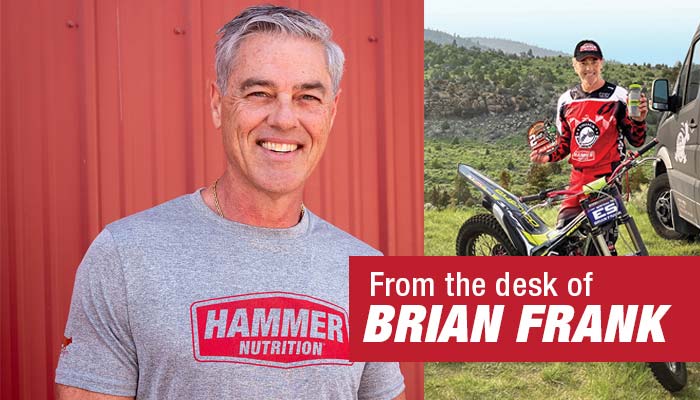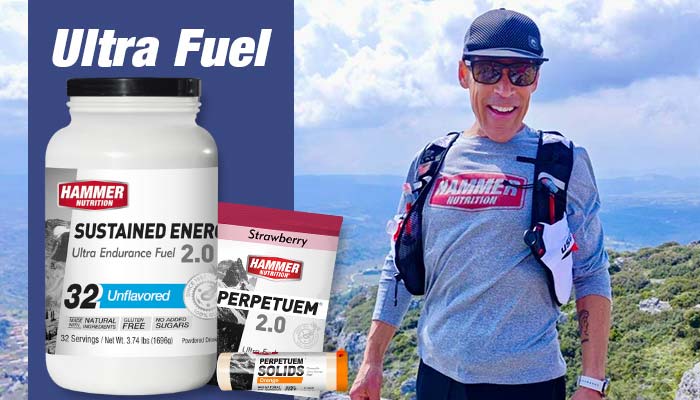
BY DEAN KARNAZES
The idea of eating three square meals a day is a very modern one. Unfortunately, so is the worldwide epidemic of obesity. The ancient Greeks practiced a form of fasting (oftentimes referred to as an Apostles’ Fast) as a way of, “purging impurities from the body and the spirit and normalizing metabolic functions.” Today, many progressive types are doing the same, including Tony Robbins and Tim Ferriss, as well of a slew of celebrities, like Beyoncé and Hugh Jackman. Indeed, intermittent fasting has become a mainstream practice in recent times.
I first started fasting years ago with little idea of what I was doing. All I knew is that as a species we evolved from a time when food wasn’t always plentiful or readily available, so it seemed inherently human to sometimes go without eating. I followed a regimen that could be loosely classified as time-restricted fasting: eating only during an eight hour window between 11 AM and 7 PM. Additionally, I ate my largest meal mid-day.
Within a week of starting this fasting practice I began to notice that I was feeling better. My sleep quality improved, my overall energy levels seemed higher, and I recovered quicker and more fully. This was prior to having widespread access to tools that can measure these things, such as Whoop and Ketone strips. But anecdotally I felt healthier even if I didn’t have quantitative proof.
There was one area where I struggled, however. If I did a hard run or workout early in the morning it was sometimes challenging to wait until 11 AM before eating. So I accommodated for that by shifting the time restriction forward from 9 AM to 5 PM. That seemed to work.
Though I should be clear, throughout this modification in eating habits I continued drinking coffee in the morning (black with no cream or sweeteners). Consuming coffee releases triglycerides and free fatty acids into the bloodstream, so my morning runs were likely fueled by stored body fat. That was probably the reason I could get through a strenuous workout without entirely bonking. If you drink coffee and don’t work out, however, those triglycerides and free fatty acids are reabsorbed. So on days I didn’t work out in the morning the circulating fats were just restored in the body.
I’ve now been practicing time-restricted fasting going on two decades. When I find something that works I tend to stick with it until I find something better. So far, I haven’t. In fact, more and more studies are validating the benefits of fasting, from improved blood sugar tolerance, reduced inflammation, greater mental clarity, and even anti-aging. I should also point out that during this period I’ve changed the types of foods I eat as well, which may be another contributing factor. I’ve eliminated junk food and sugary snacks entirely. My diet could best be described as a hybrid between Paleo, Mediterranean, Rawism, and sometimes Keto. Yes, I take this stuff seriously. My health and my performance demand it.
Needless to say, this article is an unapologetic endorsement of fasting. I’ve experienced great benefits from the practice so why not pay it forward to potentially help others? I see this as a responsibility, an obligation. Of course, consult your physician or other health care professional if you have any underlying medical conditions. And read up on the various protocols for fasting. I’ve experimented with many of them and continue coming back to the time-restricted plan of eating between 11 AM and 7 PM. It’s a simple program to follow and the results are dependable. And Hammer Nutrition’s new Hammer PHOOD makes it all the easier! (That was an unapologetic endorsement as well.)









9 comments
I’m 70 and now retired. In a previous life I was a champion middle distance runner. I was a police officer and private investigator. The latter a sedentary job with a lot of typing. I got to 109 kg from a rave weight of 81 in my twenties. I decided to get into trail running (with a lot of walking) and now 100 kgs. That’s where i learned of Hammer and started reading about food intake. I am going to try your method with a target weight of 90 kgs. I have to lose weight so that I can get the running back on track. Thanks for the information.
GC
———
Hammer Nutrition replied:
Hi Graeme, thank you for your comment, please let us know how it goes for you! BDF
Spring & Summer into early Fall, I typically finish my exercise as late as 8:30 or 9:00 pm. I like to eat afterwards. However, I have Barrett’s Esophagus and am supposed to eat 3 hours before bedtime. I am 62 and usually hit the sack by 10:00. So I must choose the lesser of two evils – usually opting to eat, but usually wishing I hadn’t gone to sleep with a full stomach. What would be the best program for exercise / nutrients for muscle recovery / fasting ?
———
Hammer Nutrition replied:
Hi Billy, Thank you for your comment. I think there is a “not” missing from your comment. Your situation may be more acute, but ideally no one should be eating three hours before bed. To accommodate your schedule and workout time, I’d suggest this; Plan to have last meal (dinner) three hours before you begin your evening exercise. When done, instead of eating a meal post workout, just have a serving of whey protein in water – It’s only 70 calories, won’t trigger a big digestion process or insulin spike and should allow you to get a good night’s sleep. It’s not ideal, but seem like a seems like a decent work around. BDF
Aside from caffeine you do an early morning long run in a fasted stated and take no nutrition (gels, etc) during the run. Does that sound right? Also, do you feel any negative impact physically when fasted before and during runs over 1.5 to 2 hours?
As as as recovery isn’t it a problem if I run from say 5am to 7am but don’t eat for 2 hours until 9am? I usually try to take Recoverite immediately after my run to kick start recovery.
———
Hammer Nutrition replied:
Hi Matthew,
Thank you for your questions, they are all good ones. I’m not sure about the long runs in a fasted state unless it LSD pace. I personally do not prefer to exercise without calories for more than about 45 minutes, at an easy pace. We’ve had several comments in this area pertaining to continuing to fast during a workout and whether fueling lightly the way we do is actually breaking a fast. To me, breaking fast involves eating solid food that triggers digestion and we’re not trying to be overly rigid about all of this. Keep in mind, we’ve been advocating to start every workout/race in a fasted state (having eaten 3 + hours prior or not at all) for decades. The main reason being that it allows you to begin burning fat as a primary fuel source immediately and spare muscle/liver glycogen. That’s a very different situation compared to sitting down to breakfast and eating 500-800 calories of protein, carbs and fat from solid foods. To me, the first scenario compliments my compressed eating style by kicking fat metabolism into high gear for an hour or two in the morning while I exercise. Next question is meal/protein timing afterwards. As is your habit, and our recommendation, when wanting to minimize muscular recovery time, protein/carbs/electrolytes should be taken immediately post workout. However, intentionally abstaining from consuming calories for 1-2 hours post workout allows you to continue burning fat that whole time, but does slow muscular recovery and glycogen replenishment. For me, the decision comes down to goals – peak performance or reducing body fat %, then proceeding accordingly. BDF
I have had good success using Hammer’s guidelines for fueling for endurance races. One of the main things that helped me was not eating within 3 hour prior, eating less, and using liquid nutrition during an event. So with the intermittent fasting, which I also feel better doing all around, at what length of event or training activity do you think it becomes necessary to start consuming calories? For example, I eat dinner at 7pm and I get up fasted at 7am and I need to do a 4 hour bike race. But I know I will feel better the first 2 hours if I don’t break my fast. It’s after 2 hours I start to question “Should I have eaten before now?”. What’s the thought on that?
———
Hammer Nutrition replied:
Hello Cindy,
Thank you for your feedback and kind words, I’m very glad to hear it. I think your example is one where you’d want to break your fast early for peak performance in a race, but not with a meal. In this instance, I’d start fueling within the first 5-10 minutes after the gun goes off and continue throughout the race. If you really want to maintain strict IF on race days, plan on opening the window at race start and finishing your last meal of the day 8 hours later. BDF